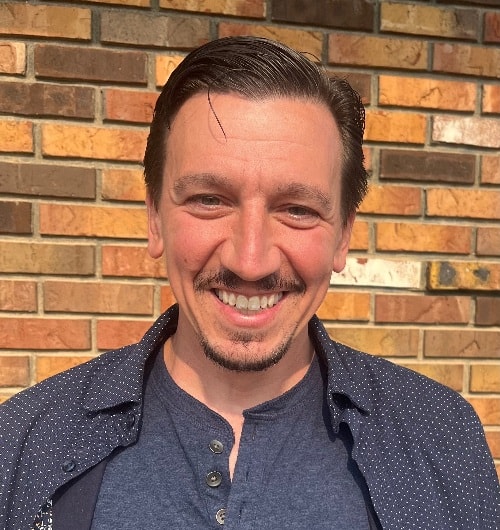
Eric Anderson is a Restore Justice Future Leaders Apprentice and a restorative justice leader and practitioner.
On Tuesday, August 22, I returned to the Kewanee Life Skills Re-Entry Center. I was there to help train some of the men incarcerated there to keep and hold peace circles. Peace circles are an ancient indigenous practice that involve bringing together community members to engage in a safe space in a way that allows for every person to be heard and recognized for their thoughts and feelings. This practice can resolve conflicts, and allow people to grieve, celebrate, or participate in any other community gathering. Having taken the four-day training offered by Precious Blood Ministry of Reconcilliation’s Sister Janet Ryan while I was still incarcerated at Kewanee), I can say with certainty that the power of the circle to impact people is beyond compare.
As someone who has recently been released from prison after spending part of my childhood and all of my adulthood in a jail or prison cell, reentering a prison could be an understandably triggering event. I freely admit that it was truly a triggering experience for me. The experience triggered me to really examine how profoundly impactful coming to see the members of our community who are still incarcerated could be for every person involved.
I spent 27 and a half years of my life incarcerated for a crime I committed when I was 15 years old. I wake up everyday with a hope of trying to honor those who I have hurt the most. I can never pay down the debt I owe. Every day I try to make a payment toward that debt. It is my belief that one of the ways I can make an impact is by bringing Peace Circle Keeper Training, and circles in general, into places where these kinds of restorative, trauma-informed safe spaces could never have existed before: namely prisons.
No one can ever doubt that going through the court system is a traumatic experience for everyone involved, especially if you are the defendant and you are young. The men who engaged with our training all fit that profile; most had been incarcerated from a young age, and most had served upward of 15 years. Some have served 30 or 40+ years. Most are men of color.
The traumas that we (who have experienced the insides of the prison cells) understand are hard things to come to terms with. My personal experience tells me that it is very rare to find such a supportive, understanding, and ready-made support group of people. Not only am I trying to find that space for myself, I am trying to create such spaces for those who I know need the healing that can happen to those of us who really open ourselves up to the possibility of sharing our hurts so that we can share our healing.
The most important thing for me to try and communicate right now is: 1) a thank you to all of the men who participated in our training, 2) a thank you to all the staff, faculty, and administrators who supported us, 3) a thank you to Sister Janet Ryan and Precious Blood Ministry of Reconciliation, and 4) all of the support that we have received from Restore Justice.
I hope to do much more of this work, I hope to be able to bring this program to a place where it is sustainable and evident how amazing this process can really be.

